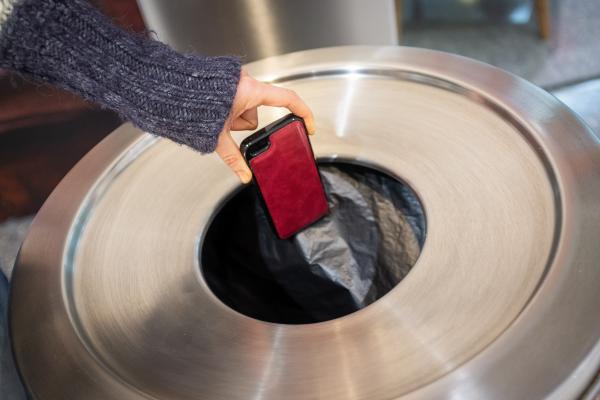The digital age and social networks have transformed the way we interact interpersonally, giving us the ability to connect with people around the world with a simple click. This ease of establishing connections has given rise to a phenomenon known as “collecting friends,” whereby the number of online contacts becomes a priority objective. Thus, a fundamental question arises, does accumulating many “friends” or contacts really enrich our lives?
It is important to understand that the quantity of relationships or people in our social environments does not always equal the quality reflected in those links. By building this type of meaningless relationships, we often fall into superficial and materialistic attitudes, hiding insecurities or fears of loneliness and surrounding ourselves with people to avoid these feelings.
In this article, we will solve the doubt about why collecting friends does not enrich social life. We will study and understand the reasons for this phenomenon, along with the emotional and psychosocial consequences it has on us, in addition to offering some strategies to build quality and meaningful relationships.
What is “collecting friends”?
In our digital age and the omnipresence of social media in our lives, “collecting friends” has become a common presence. In essence, this phenomenon involves accumulating a large number of connections on platforms such as Instagram, Facebook or even LikedIn, without necessarily developing deep or meaningful relationships, but letting yourself be carried away by the desire to have more and more virtual connections.
The collection of friends is driven by a variety of motivations, ranging from the desire to increase the number of followers to the need for social validation.
Social networks facilitate the expansion of our contacts quickly and seemingly effortlessly. With just a few clicks, we can add people we barely know or even complete strangers as “friends” or “followers.” This process can offer and generate a feeling of instant gratification by increasing the number of connections on our profile, but does it really enrich our social life, or, on the contrary, does it worsen it?
The problem is that the accumulation of friends on social networks does not guarantee the quality of our interpersonal relationships. It’s easy to confuse quantity with quality, mistakenly believing that having hundreds or thousands of online friends is equivalent to having a rich and satisfying social life. However, The true richness of our social relationships is found in the depth and authenticity of those connections, not their quantity.
“Friend collecting” can lead us to focus on the superficiality of online interactions rather than cultivating genuine relationships off screen. By prioritizing quantity over quality, we risk neglecting the meaningful relationships in our real lives. This can result in feelings of loneliness and isolation, despite having a large number of virtual friends.
Why quantity does not equal quality
In our quest for a fulfilling social life, it is crucial to understand that the number of friends or non-meaningful social connections does not always translate into quality of relationships. Here are several reasons why quality trumps quantity in the realm of social connections:
1. Surface interactions
In an online environment where the focus is on image and appearance, interactions tend to be superficial and materially focused. Accumulating friends can lead to a feeling of superficial connection, where conversations lack depth and real meaning and, in many cases, relationships are guided by interest.
2. Lack of emotional commitment
Maintaining a large number of friends on social networks can make us feel less emotionally committed to each of them. When we have too many connections, it is difficult to dedicate time and energy to cultivating meaningful relationships with each person.
3. Difficult to maintain relationships
The more friends we have, the more difficult it will be to maintain strong relationships with each of them. The quality of our interactions can be compromised when we are scattered among a multitude of connections, resulting in neglected or abandoned relationships.
4. Privacy leak
In an environment where everything is shared publicly, intimacy can be diluted. Overexposure on social media can lead to a sense of false closeness, where we share intimate details of our lives with people we barely know, but lack deep, meaningful connections in the real world.
5. Constant comparison
The focus on the number of friends can trigger feelings of inferiority by constantly comparing ourselves to others who have more online connections. This competition for popularity can undermine our self-esteem and make us feel dissatisfied with our own social relationships.
Negative effects of collecting friends
While accumulating friends on social media may seem harmless, it can have several negative effects on our social life and emotional well-being. In this section, we will discuss some of the main negative effects and consequences of the friends collection phenomenon.
1. Feeling of loneliness
Paradoxically, having a large number of online friends can increase feelings of loneliness. This is because superficial interactions and lack of meaningful connections do not meet our basic emotional needs for belonging and connection.
2. Distraction and disconnection
Focusing on the number of friends can distract us from the real, meaningful relationships in our lives. Spending too much time on social media collecting friends can lead us to neglect face-to-face interactions and feel disconnected from our immediate surroundings.
3. Social comparison
Social media culture encourages constant comparison, especially in terms of popularity and number of friends. Seeing others accumulate friends can generate feelings of envy and lower our self-esteem if we perceive that we are not achieving the same levels of popularity.
4. Risk of superficiality
By focusing on quantity instead of quality, we run the risk of having superficial and meaningless relationships. A lack of depth in our connections can leave an emotional void and contribute to a feeling of dissatisfaction in our social relationships.
5. Emotional isolation
Overexposure on social media can lead to a decrease in intimacy and trust in our relationships. Sharing intimate details of our lives with a wide audience online can make us feel exposed and vulnerable, which can lead us to emotionally withdraw and isolate ourselves from others.
6. Impact on mental health
Excessive use of social media and obsession with collecting friends can have a negative impact on our mental health. Constant comparison, feelings of loneliness, and lack of meaningful connections They can contribute to stress, anxiety and depression.
Strategies to avoid collecting friends
Once we have understood the negative impact of generating non-meaningful connections with a greater number of people, it is important to accept that change is possible. To avoid falling into the trap of collecting friends on social media and cultivating more meaningful relationships, here are some practical strategies you can implement:
1. Evaluate your connections
Take the time to review your social media friends list and evaluate the quality of your connections. Consider eliminating those people with whom you do not have a meaningful relationship or who do not contribute positively to your life.
2. Prioritize quality over quantity
Instead of seeking to increase your number of online friends, focus on nurturing deep, meaningful relationships with a small circle of close people. Spend time and energy maintaining authentic connections instead of accumulating superficial contacts.
3. Encourage face-to-face interaction
Prioritize face-to-face interactions over online interactions whenever possible. Organize social gatherings, outings or activities with friends and loved ones to strengthen emotional bonds and create meaningful memories together.
Set healthy limits on your social media use and reduce the amount of time you spend on these platforms. This It will allow you to spend more time cultivating relationships off screen and participating in activities that enrich your social life in a significative way.
5. Practice authenticity
Be authentic and genuine in your interactions online and off. Share your experiences, thoughts and feelings openly and honestly, and seek connections based on sincerity and authenticity.
6. Encourage gratitude
Appreciate and value the meaningful relationships you have in your life, instead of constantly seeking new connections. Cultivate a sense of gratitude for the people around you and recognize the value they bring to your life.
In conclusion, collecting friends on social networks can offer an illusion of connection, but quantity does not guarantee the quality of our relationships. Prioritizing meaningful relationships over superficial contacts is essential for emotional well-being.
By evaluating our connections, limiting time online, and encouraging authentic interactions, we can cultivate a more fulfilling and meaningful social life, where true wealth lies in the depth of our relationships.










